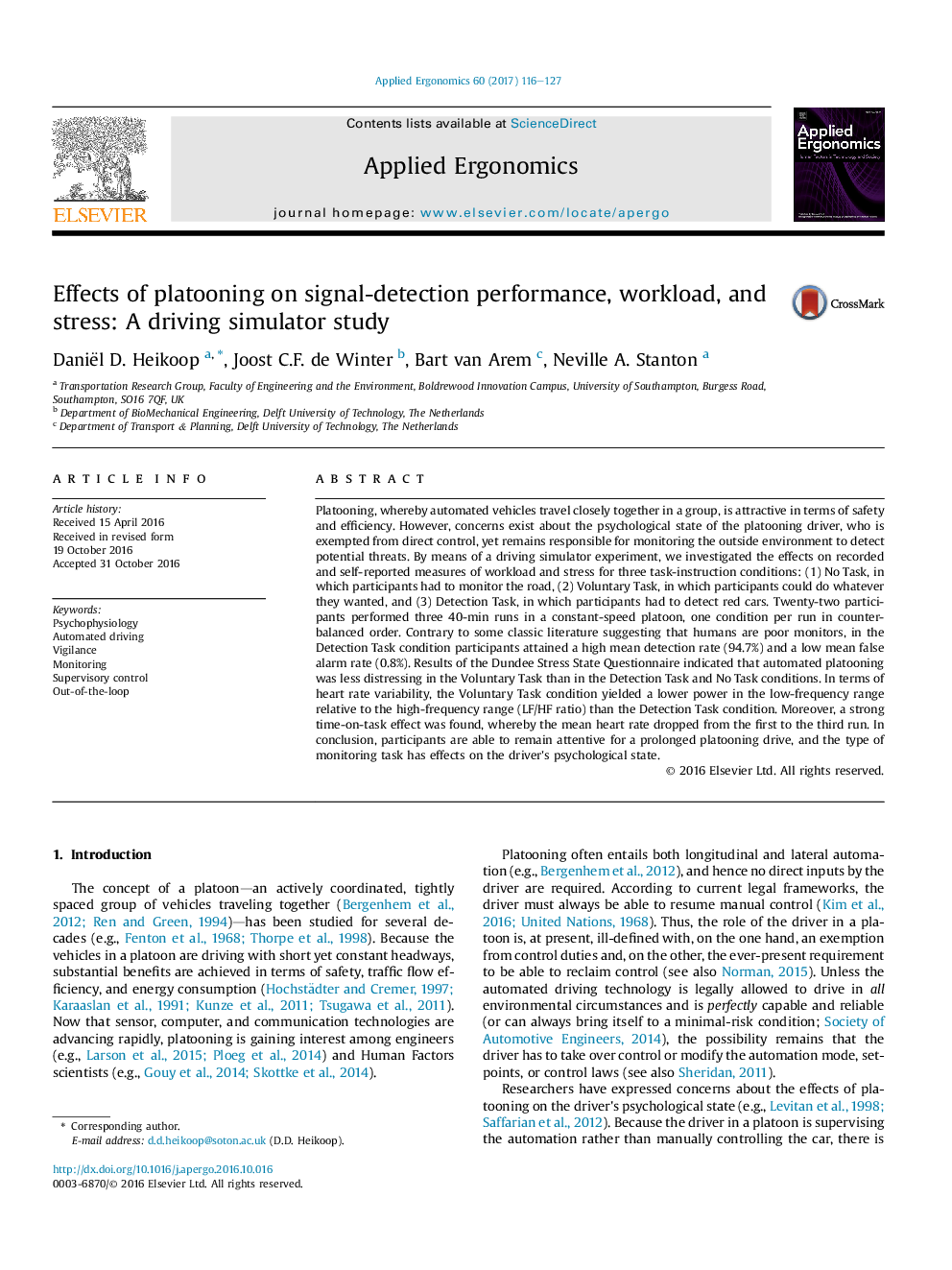| کد مقاله | کد نشریه | سال انتشار | مقاله انگلیسی | نسخه تمام متن |
|---|---|---|---|---|
| 4972096 | 1450710 | 2017 | 12 صفحه PDF | دانلود رایگان |
عنوان انگلیسی مقاله ISI
Effects of platooning on signal-detection performance, workload, and stress: A driving simulator study
ترجمه فارسی عنوان
تأثیر غربالگری بر عملکرد سیگنال تشخیص، میزان بار کاری و استرس: یک مطالعه شبیه ساز رانندگی
دانلود مقاله + سفارش ترجمه
دانلود مقاله ISI انگلیسی
رایگان برای ایرانیان
کلمات کلیدی
روانپزشکی، رانندگی خودکار بی نظمی، نظارت بر، کنترل نظارت، خارج از حلقه،
موضوعات مرتبط
مهندسی و علوم پایه
مهندسی کامپیوتر
تعامل انسان و کامپیوتر
چکیده انگلیسی
Platooning, whereby automated vehicles travel closely together in a group, is attractive in terms of safety and efficiency. However, concerns exist about the psychological state of the platooning driver, who is exempted from direct control, yet remains responsible for monitoring the outside environment to detect potential threats. By means of a driving simulator experiment, we investigated the effects on recorded and self-reported measures of workload and stress for three task-instruction conditions: (1) No Task, in which participants had to monitor the road, (2) Voluntary Task, in which participants could do whatever they wanted, and (3) Detection Task, in which participants had to detect red cars. Twenty-two participants performed three 40-min runs in a constant-speed platoon, one condition per run in counterbalanced order. Contrary to some classic literature suggesting that humans are poor monitors, in the Detection Task condition participants attained a high mean detection rate (94.7%) and a low mean false alarm rate (0.8%). Results of the Dundee Stress State Questionnaire indicated that automated platooning was less distressing in the Voluntary Task than in the Detection Task and No Task conditions. In terms of heart rate variability, the Voluntary Task condition yielded a lower power in the low-frequency range relative to the high-frequency range (LF/HF ratio) than the Detection Task condition. Moreover, a strong time-on-task effect was found, whereby the mean heart rate dropped from the first to the third run. In conclusion, participants are able to remain attentive for a prolonged platooning drive, and the type of monitoring task has effects on the driver's psychological state.
ناشر
Database: Elsevier - ScienceDirect (ساینس دایرکت)
Journal: Applied Ergonomics - Volume 60, April 2017, Pages 116-127
Journal: Applied Ergonomics - Volume 60, April 2017, Pages 116-127
نویسندگان
Daniël D. Heikoop, Joost C.F. de Winter, Bart van Arem, Neville A. Stanton,
